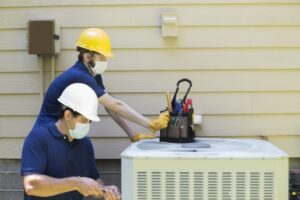
Before you get too enthusiastic, we need to clarify this is not a “how-to” guide. We generally do not recommend that homeowners do any repairs on their air conditioners themselves. Aside from changing the air filter or tightening a loose screw on a panel of the outdoor unit of the cooling system, trying to resolve repair needs on your own can do more harm than good, and leave you needing to call in a professional anyway. For complex air conditioning problems, it’s essential to have a trained technician diagnose the issue to ensure an accurate and efficient solution. Scheduling end-of-season air conditioning service is also important to keep your system running efficiently and to catch potential issues early. Attempting DIY repairs can be risky, so it’s always best to hire certified professionals for air conditioning repair to guarantee quality service and proper system operation.
What does air conditioning repair include?
Air conditioning repair typically includes the following services:
- Diagnosing issues like poor airflow or lack of cooling
- Fixing refrigerant leaks and recharging refrigerant levels
- Replacing worn or damaged components such as capacitors or motors
- Repairing or replacing faulty thermostats
- Addressing electrical problems or sensor failures
- Cleaning coils and ensuring proper airflow
- Testing the system to confirm restored performance
What this is a guide for is the most common questions that come up in regards to air conditioning repairs like how long they’ll last and why that matters, how much AC repairs cost, and if AC repairs can be prevented. We’ll also address how to ensure your system is working properly to maintain comfort and efficiency. Read on to learn the answers to these questions.

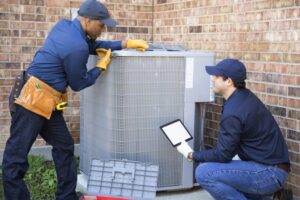
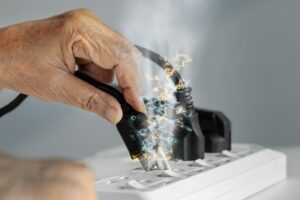
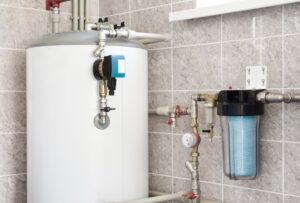
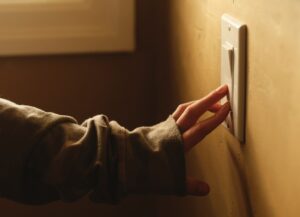
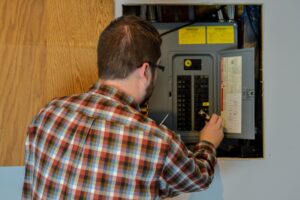
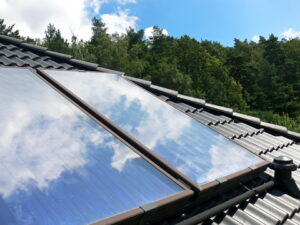 When we’re in the middle of a hot and sticky summer, there’s only so much a homeowner can do to keep their living space cool. You can make sure you keep your air conditioner tuned-up properly, that you keep your blinds and curtains closed in the middle of the day to keep the sunshine out (especially on south facing windows), and run your solar attic fan!
When we’re in the middle of a hot and sticky summer, there’s only so much a homeowner can do to keep their living space cool. You can make sure you keep your air conditioner tuned-up properly, that you keep your blinds and curtains closed in the middle of the day to keep the sunshine out (especially on south facing windows), and run your solar attic fan! We all have a genre of music that we prefer. Maybe your chosen type is classical or instrumental. If so, you’ll likely enjoy a good orchestra… unless the performance is coming from your air conditioning system. That level of noise and the many sounds it entails is bad news for the operation of your AC.
We all have a genre of music that we prefer. Maybe your chosen type is classical or instrumental. If so, you’ll likely enjoy a good orchestra… unless the performance is coming from your air conditioning system. That level of noise and the many sounds it entails is bad news for the operation of your AC.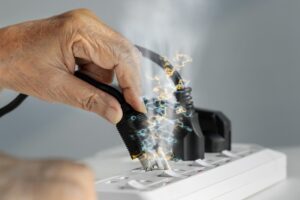 Homes today have more technology in them than ever before. And most of this technology relies on that homes’ electrical system. Think about it—you probably have multiple devices connected to your household’s power supply at any given time, right? With many power charging stations handling your portable systems and many high efficiency appliances throughout the living space.
Homes today have more technology in them than ever before. And most of this technology relies on that homes’ electrical system. Think about it—you probably have multiple devices connected to your household’s power supply at any given time, right? With many power charging stations handling your portable systems and many high efficiency appliances throughout the living space.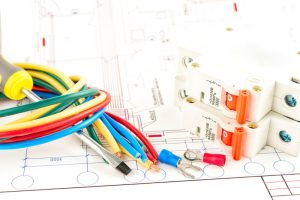 Each and every year, thousands of people die or are injured by unintentional CO (carbon monoxide) exposure or house fires. It’s a harsh statistic, but one that amplifies the importance of having properly installed smoke and CO detectors in your home. In fact, it’s the law that homes have these two devices in them when you move in, and illegal to tamper with these devices in most jurisdictions too.
Each and every year, thousands of people die or are injured by unintentional CO (carbon monoxide) exposure or house fires. It’s a harsh statistic, but one that amplifies the importance of having properly installed smoke and CO detectors in your home. In fact, it’s the law that homes have these two devices in them when you move in, and illegal to tamper with these devices in most jurisdictions too.